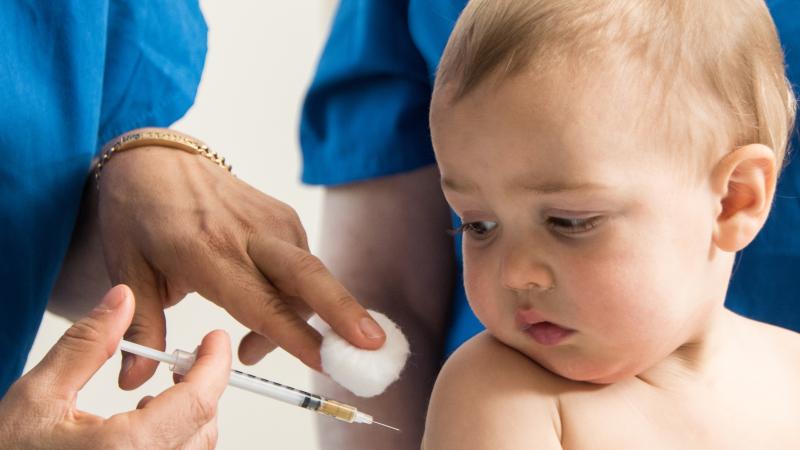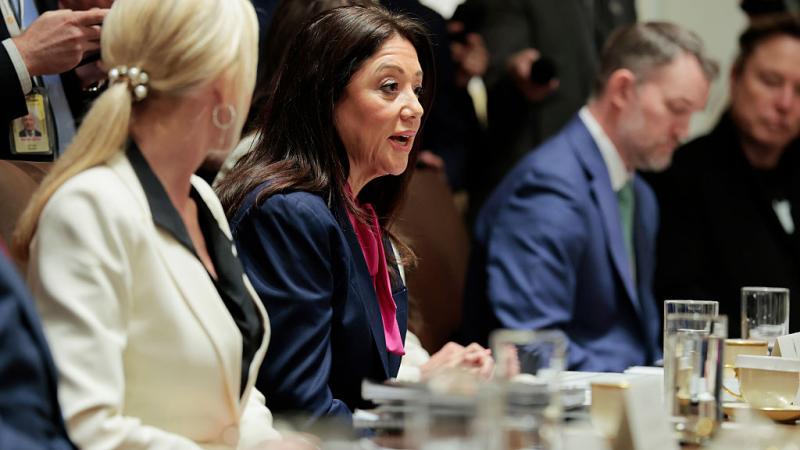Oops! Feds' guidance on COVID vaccines moves closer to alleged 'misinformation' of skeptics
Twitter quietly modified "misinformation" policy earlier this month to punish users who claim vaccinated people "can spread or shed the virus," but later claimed "virus" was a typo.
Federal officials and advisors who have consistently boosted COVID-19 vaccines are starting to sound more like skeptics of the vaccines' efficacy and safety.
The face of the Biden administration's COVID response is now making the same claims about vaccines that got a contrarian journalist booted from Twitter, while the CDC encouraged Americans to avoid a specific vaccine.
National Institute of Allergy and Infectious Diseases Director Anthony Fauci cowrote a "perspective" in the New England Journal of Medicine (NEJM) Wednesday that acknowledged COVID vaccines were not living up to expectations.
Not only do the three vaccines authorized for emergency use require boosters due to waning "protective efficacy," but they haven't stopped breakthrough infections, "allowing subsequent transmission to other people even when the vaccine prevents severe and fatal disease."
Former New York Times reporter Alex Berenson wrote of the vaccines in August: "It doesn't stop infection. Or transmission." They have a "limited window of efficacy and terrible side effect profile."
Twitter permanently suspended him the same day for "repeated violations of our COVID-19 misinformation rules."
The social media company didn't respond to Just the News queries seeking its distinction between claims by Berenson and Fauci and whether it would apply an "unsafe" warning to the NEJM essay, as it recently did to a study on increased heart risks in vaccine recipients, or otherwise restrict the publisher's account.
Twitter quietly updated its "COVID-19 misleading information policy" page sometime after Dec. 2, even while claiming through Wednesday afternoon that the update was made in November. Reclaim the Net noted the discrepancy Dec. 11.
Among the new authority it granted itself, Twitter said it will punish users who claim vaccines, regardless of their authorization status, are "experimental"; taking them "would be more harmful than getting COVID-19"; and most pertinent to Fauci's essay, vaccinated people "can spread or shed the virus ... to unvaccinated people."
By Wednesday night, Twitter corrected the month to "December" and changed the word "virus" to "vaccine" in the sentence on spreading or shedding. Snopes reported Thursday that Twitter claimed "virus" was a typo and that the "earlier language is not reflective of our enforcement approach, past or present."
This summer, Twitter briefly suspended this JTN reporter for echoing CDC guidance on COVID vaccine risks to certain populations.
Berenson crowed Thursday that he "[c]an't wait to see Twitter's lawyers try to explain" his ban while taking no action against Fauci's essay or NEJM, which tweeted the essay Wednesday night. The journalist implied he was on the verge of suing Twitter, as he previously threatened.
Unlike Berenson's tweet, Fauci's essay didn't mention side effects. But federal agencies have acknowledged elevated risks in certain populations following vaccination since the vaccines were first widely made available.
Johnson & Johnson's vaccine faced its second black mark this year on Thursday, when the CDC quickly approved an advisory body's recommendation for Americans to take Pfizer or Moderna's vaccines instead.
Regulators temporarily paused its rollout in April following reports of life-threatening blood clots in adult women under 50. Eight months later, the CDC's Advisory Committee on Immunization Practices said it had underestimated the frequency and seriousness of the clots, as well as the age range experiencing them.
J&J is also associated with an elevated risk for Guillain-Barré syndrome, according to a study by Kaiser Permanente and CDC researchers.
Even though the CDC announced a "clinical preference" for the mRNA vaccines Thursday, six months earlier it found a "likely link" between those vaccines and heart problems in young people. So did researchers in a study of male military service members, published in the Journal of the American Medical Association Cardiology.
The FDA quickly added heart inflammation warnings to the mRNA vaccines' fact sheets and delayed authorization of Moderna's vaccine for teenagers for that reason.
While supporting the new recommendation, CDC Director Rochelle Walensky said Thursday that "receiving any vaccine is better than being unvaccinated" — even if it's J&J's — because victims in breakthrough cases have lower mortality and hospitalization.
'Risks outweigh benefits'
The feds' Vaccine Adverse Event Reporting System (VAERS) had received more than 500,000 COVID vaccine-related reports through September.
But an explosive new study claims vaccine-related deaths are underreported in VAERS "by a factor of 20" — and an unusually high number were found in infants, attributed to their mothers' vaccinations during pregnancy. The study was released as a preprint and has not yet undergone peer review.
Columbia University clinical neurobiologist Spiro Pantazatos, also a research scientist at the New York State Psychiatric Institute, said "existing surveillance studies are not designed to reliably estimate life-threatening event or vaccine-induced fatality rates (VFR)."
By studying "regional variation in vaccination rates," he and Israel-based researcher Hervé Seligmann were able to predict "all-cause mortality and non-COVID deaths in subsequent time periods" using U.S. and European datasets.
They determined a VFR of 0.04% averaged across the U.S., reaching 0.06% for people over 75. That works out to 146,000-187,000 "vaccine-associated" deaths from February through August. The CDC's estimated VFR is 0.002%, which shows VAERS suffers from "under-ascertainment bias."
Infants account for most of the age 0-17 deaths in the U.S. data, according to a supplementary section. The researchers hypothesize "this effect could be attributed to vaccinations in the mother."
A July report found that pregnant women who got vaccinated accounted for more than 2,300 VAERS reports, and 36% of those women "experienced some type of pregnancy disorder." By running an "additional regression" on children under age 1, researchers estimated 667 infant deaths attributed to their mothers' vaccinations.
The study concludes: "Comparing our age-stratified VFRs with published age-stratified coronavirus infection fatality rates (IFR) suggests the risks of COVID vaccines and boosters outweigh the benefits in children, young adults and older adults with low occupational risk or previous coronavirus exposure."
It was promoted on Twitter by mRNA vaccine pioneer Robert Malone, whose warnings about COVID vaccine safety have put him — and those who interview him — in Big Tech cross hairs.
Pantazatos didn't answer Just the News queries about the reception the study has received; whether he's submitting it to a peer-reviewed journal; and what concerns if any he has about becoming a cancelation target for his research.
The Facts Inside Our Reporter's Notebook
Links
- New England Journal of Medicine
- wrote of the vaccines in August
- Twitter permanently suspended him
- study on increased heart risks
- COVID-19 misleading information policy
- after Dec. 2
- claiming through Wednesday
- Thursday
- Reclaim the Net
- briefly suspended a JTN reporter
- Berenson crowed Thursday
- tweeted the essay
- CDC advisors met Thursday
- elevated risk for Guillain-Barre syndrome
- Pfizer and Moderna vaccines and heart problems
- study of male military service members
- heart inflammation warnings
- delayed authorization of Moderna's vaccine
- more than 500,000 COVID vaccine-related reports
- new study
- mRNA vaccine pioneer Robert Malone
- Big Tech cross hairs
















